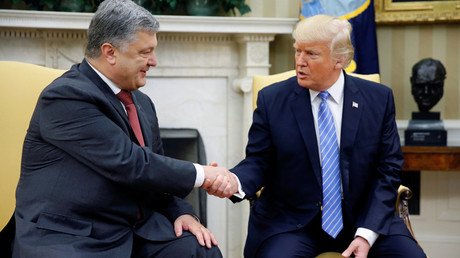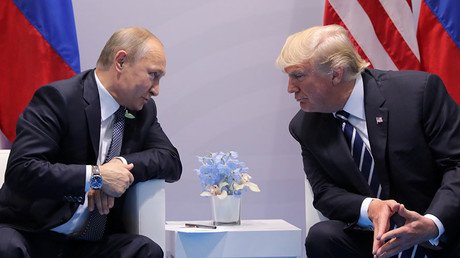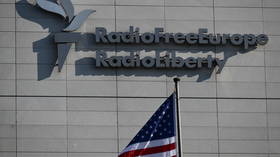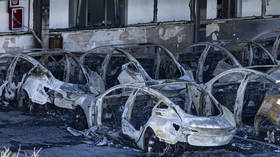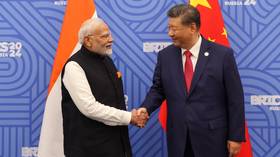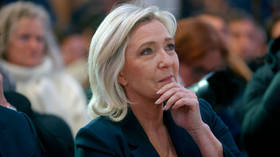Lavrov: Shortsighted policies of US, EU in many ways provoked Ukrainian crisis
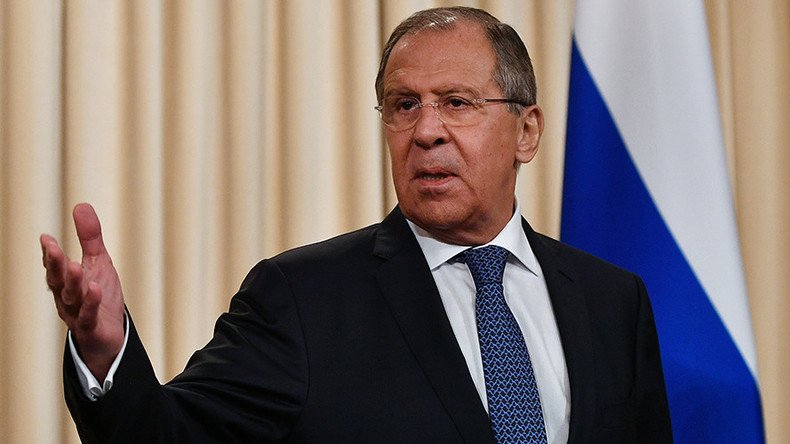
Since the end of the Cold War, Moscow hoped for international peace and cooperation, but certain decisions and actions of its Western partners have led to further "dividing lines" in Europe, and "have largely provoked" the Ukrainian crisis, Russia's Foreign Minister Sergey Lavrov has said.
In the early 1990s, “the US and its allies decided to pronounce themselves winners [in the Cold War] and refused to cooperate on creating equal and undivided security, having instead chosen to move dividing lines closer to Russia's borders,” Lavrov said Thursday, speaking at the ‘Russia & the EU in a changing world’ conference in Berlin.
This policy was realized both through expansion of NATO and through an EU program called ‘The Eastern Partnership’ (EaP), the minister explained, saying that countries in the Eastern Europe were forced to make a choice either to support Russia or the West.
“The largely-provoked-from-the-outside Ukrainian crisis has become the direct consequence of such shortsighted policy of Washington and Brussels,” Lavrov said.
Fulfillment of the Minsk agreements to resolve the conflict in Ukraine could contribute to de-escalation of tensions on the European continent, Lavrov said, adding that so far, Kiev’s eagerness to stay true to its obligations within the peace deal is “doubtful.”
“We hope that Germany and France, as partners within the Normandy format, as well as the US who have a special influence on the Kiev establishment, will use their means to change the situation.”
The Russian minister added that Moscow wishes Ukraine to be “a normal democratic state,” but at the moment the power in Kiev “is largely in the hands of radicals, who do not comply with anyone, including with their commander-in-chief.”
“We want to see Ukraine a stable country, where all minorities, including linguistic, religious and ethnic, live freely and exercise rights provided by international conventions,” he said.
Putin & Trump agree to create bilateral channel to promote Ukraine settlement – Lavrov https://t.co/Y84wq5jxRapic.twitter.com/t5V6hqha4z
— RT (@RT_com) July 7, 2017
Having discarded the idea of a multipolar world and chosen to act in its own interests, “the elite of the Western world have been pursuing the policy to politically and economically contain Russia.” At the same time, old security threats have not disappeared, but new ones emerged, Lavrov said, adding that the world is still dealing with these threats.
“Numbers of dissatisfied and deprived have grown both in national and global scales, which – against the backdrop of many unresolved issues – fuels extremist moods.”
An “unprecedented growth of the terrorist threat” has been provoked by Western policies not only on the European continent, but also in the Middle East and North Africa, Lavrov said. He added that a number of countries in that region, including Iraq, Libya and Syria “were plunged into a deep crisis.”
The minister also criticized Western sanctions against Russia, saying he has to “remind that introducing sanctions is the prerogative right of UN Security Council, used purely in the interests of maintaining international peace and security.”
However, the West had decided to force restrictions against Moscow, making many people in Europe “victims of geopolitical games.”
“We will not engage in talks on some conditions of lifting of sanctions,” Lavrov said. He added that “it's not in Russians’ character to hold grudges against anyone, so if and when the EU recognizes the importance of getting back to normal relations with Russia,” Moscow will not refuse to cooperate.
